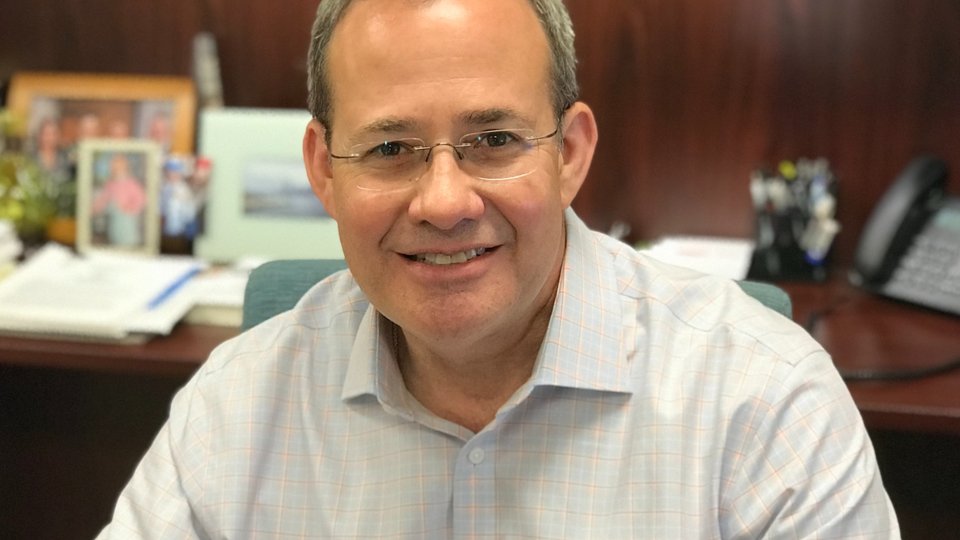A View From The Top
Paris Baguette CDO shares 3 secrets to real estate, construction
Mark Mele, CDO of Paris Baguette, discusses how the international bakery franchise prioritizes convenient locations with high visibility when looking for cafe spaces.

March 22, 2023
With a franchise concept as big as Paris Baguette — the cafe chain with 4,000 units open around the globe — the pipeline can build up fast. As we continue to see so much interest in our franchise concept, we've worked hard to ensure each location is set up to offer owners a stream of success that's as steady as the batches of fresh bakery goods they produce. A big part of that equation? Real estate and construction. We currently have over 130 recently-signed franchise owners in our real estate and construction pipeline.
So, what are some tips and tricks for best navigating the complex real estate process? Here is how we do it at Paris Baguette.
1. Finding existing locations
Oftentimes, the best location has already been discovered by someone else, which means it will come to you as a second-generation site. Once a franchise agreement is executed, Paris Baguette works with local and national real estate brokerage firms to narrow down suitable sites and approve them. The next step is to present the options for the location to the new franchisee, who will review them before choosing one, sending out a letter of intent and undergoing lease negotiations. Nearly 80% of the time, we end up going with an existing facility.
In other instances, we will choose a location in a new shopping plaza that is being built, and once in a blue moon we will have a few agreements that are for freestanding new construction buildings.
While a brand new site can sound exciting, the best option, at least for a concept like ours, is usually finding an existing location to fit your needs. Regardless of which direction we go, the entire process of finding a site takes an average of 80 days.
2. Adapting to the right floor plan
Each franchise concept will have different requirements when it comes to space, but it's important to do the proper due diligence and determine the optimal floor plan for that particular site.
Based on our business model, for example, we look for sites between 3,000 and 3,500 square feet that are either inline spaces or end caps of a lifestyle-focused shopping center. This usually means targeted plazas that offer convenience and easy accessibility, with big-box retail anchors that are busy all hours of the day.
But after the space is identified using those requirements, the brand will do an additional "test fit", retrofitting the existing floor plan and maximizing to get the most efficient use of space for a new Paris Baguette.
As part of this strategy, we recently rolled out a 3.0 design that all new locations are constructed with to better streamline this process. The 3.0 design includes upgraded furniture, fixtures, flooring, ceilings, lighting, millwork, refrigeration and freezer units. The seating is new, and there are several upgrades to both the interior and exterior (in places with outdoor seating). It's more modern, up-to-date and very French and European-inspired with the colors and wood tones.
While it is important to have a general template of what a site should look like, it is also essential that brands continue to adapt and tweak their floor plans in order to get the most out of a space.
3. Keeping to the construction timeline
After the site has been approved and the floor plans are laid out, it's time to get building. It's important to ensure that there is a hard construction timeline in place so nothing falls through the cracks.
Following our test fit, for example, we will make architectural drawings and have contractors bid on the project. The construction process, training staff at our training center and bringing in all the inventory and equipment can typically take three to four months, and then the bakery café is ready to open its doors. All in all, it usually takes about nine months from the time the franchise owner signs the agreement to when they are serving happy guests.
Overall, franchisors need to be prepared to offer nonstop support to franchisees for the entirety of the pre-opening process, as well as into opening and beyond. Real estate and construction is a key part of this process and should be handled accordingly.
 ChatGPT
ChatGPT Grok
Grok Perplexity
Perplexity Claude
Claude












